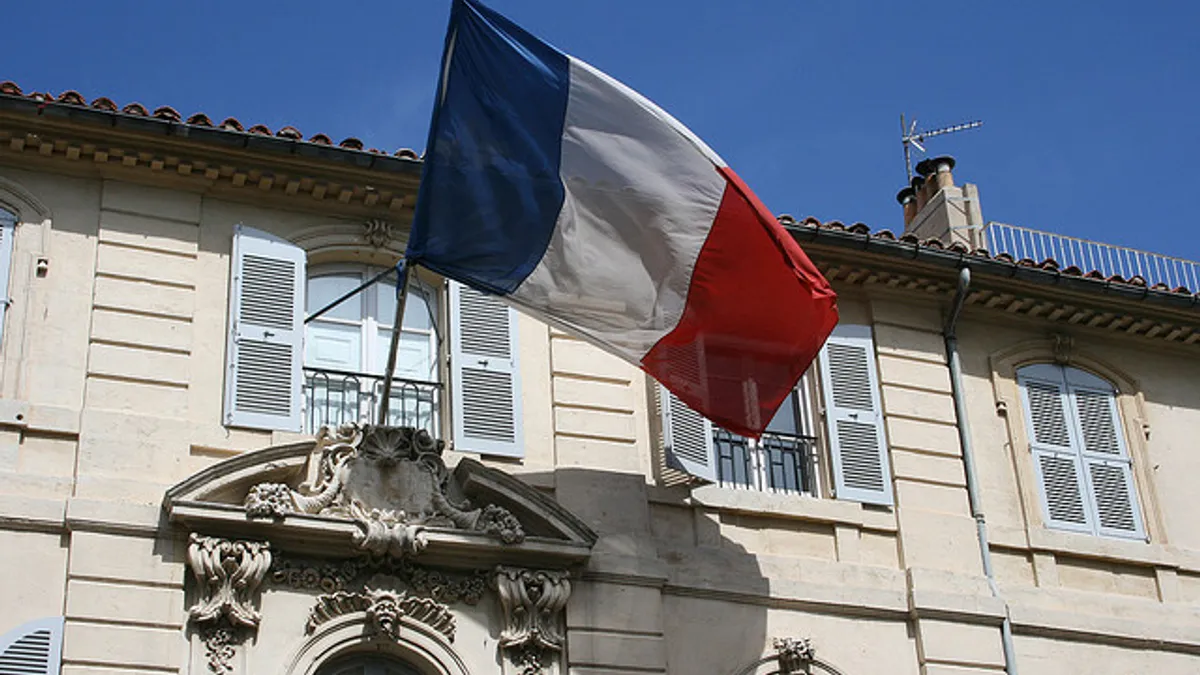Dive Brief:
- France has announced a plan to discount goods that have recycled plastic packaging, such as recycled bottles, according to Reuters. Those items could cost up to 10% less than products with packaging made from virgin resins.
- The government also intends to increase landfill taxes while reducing the tax on recycling operations in addition to implementing a plastic bottle deposit program. Major recyclers Veolia and Suez have reportedly favored such steps in the past.
- The actions will be implemented over the next few years, although the timeline is vague, and they are in line with the Circular Economy Roadmap that France released in April. The document contains 50 goals including using 100% recycled plastics across the country by 2025, reducing resource consumption 50% by 2025 and increasing extended producer responsibility.
Dive Insight:
Achieving 100% plastic recycling in the next seven years is a rather lofty goal for France, considering the country currently recycles only about 25% of its plastic packaging — considered one of the lowest rates in Europe. By comparison, Germany and The Netherlands recycle about 50% of their plastic packaging. The U.S. has a 9% recycling rate for plastics overall, although the rate for certain materials such as PET bottles and jars is higher, around 30%, according to the EPA.
The government's push to channel more plastics toward recycling through a price penalty system is an interesting approach. The idea could be likened to some plastic bag fees in the U.S. in which customers are charged more only if they request a plastic bag. But those fees are mere pennies — about 5 cents per bag, give or take — whereas the French proposal would create a discount of up to 10% of a product's cost, which could add up to a disparity of dollars, depending on the product.
France already has a plastic bag ban in grocery stores, except for compostable bags. It also passed a measure banning plastic straws, cups and plates starting in 2020. But the French environmental minister noted that waging a war on plastic through bans is not enough; the economy must change to be able to recover and consume the plastics already in use.
France's new actions rely heavily on an extended producer responsibility (EPR) model, in which manufacturers are pushed to use recycled materials in their products and to make them recyclable. Manufacturing products that are recyclable and comprise recycled materials in the first place increases consumers' ability and likelihood to recycle. EPR is far more popular in European countries, but it is seen as potentially catching on in some U.S. markets as a way to boost recycling rates and create a closed-loop economy now that export options are becoming more limited.















